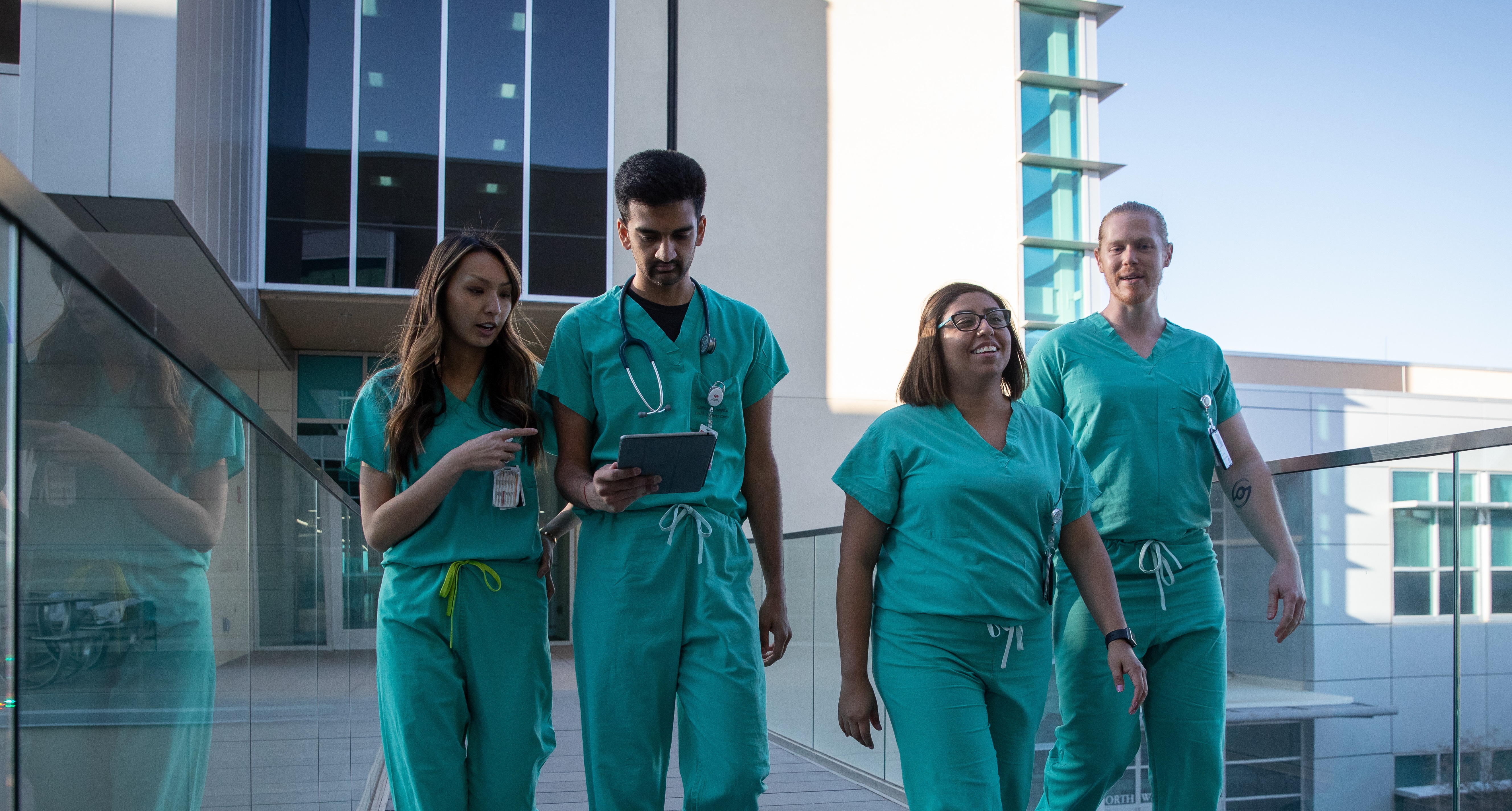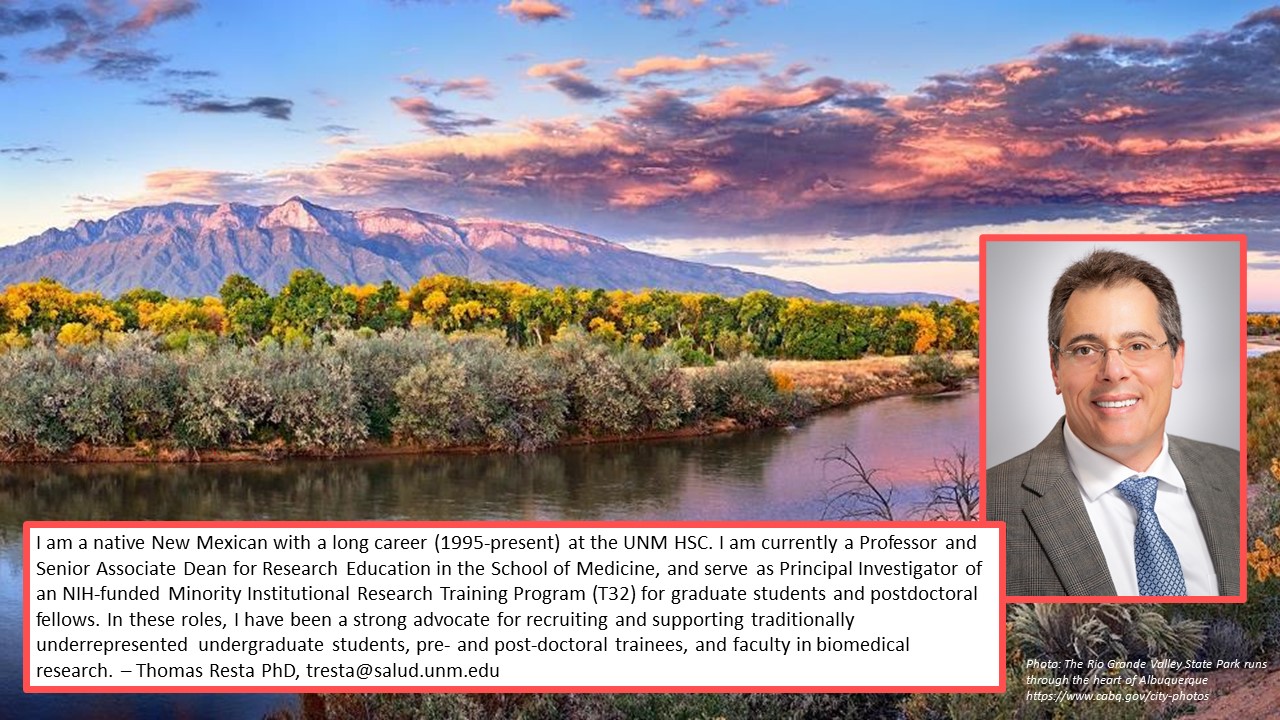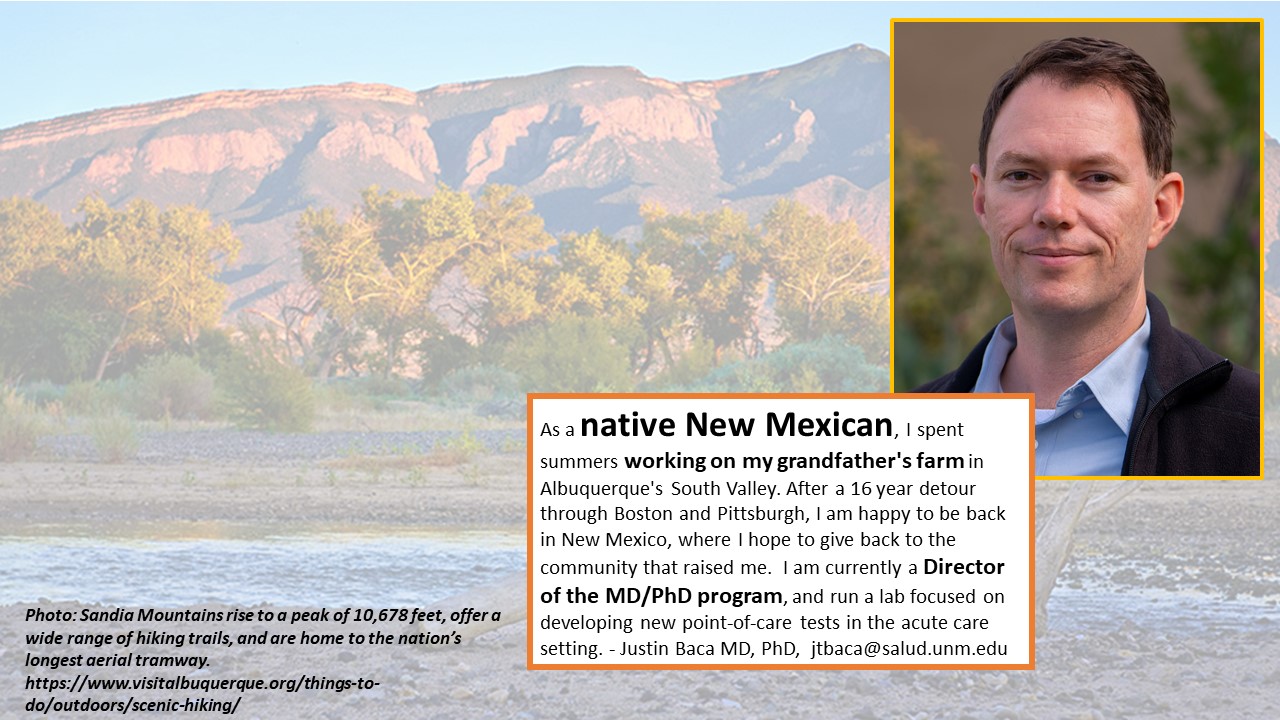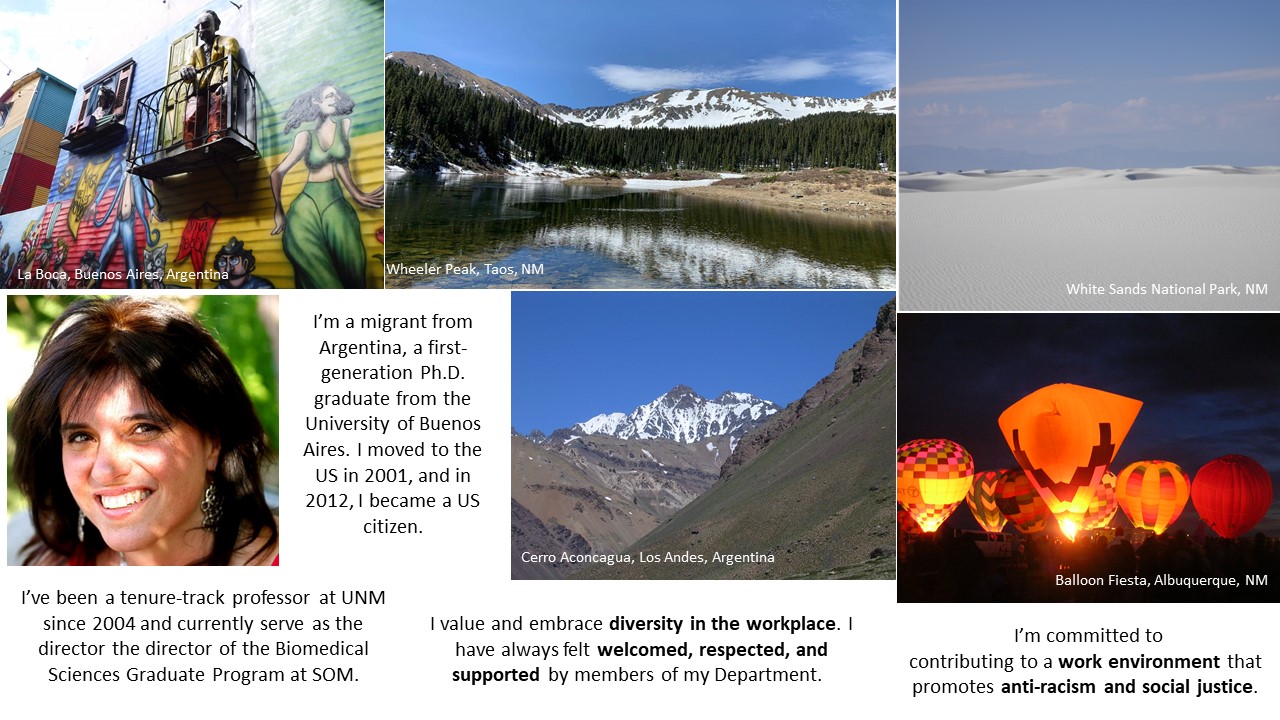SOMREO believes that our dimensions of difference unify us.

The School of Medicine Research Education Office is dedicated to advancing a diverse and inclusive workforce that can lead clinical, educational, research, and service excellence as well as drive equitable health outcomes for the broadly diverse communities affected by our biomedical science research.
Individuals working within and affected by biomedical science research reflect broadly diverse identities and experiences with regards to race, color, ethnicity, citizenship, cultural background, socioeconomic status, gender, sex, gender identity, gender expression, sexual orientation, age, parent status, disability, religion, veteran status, relationship status, relationship structures, etc. We aim to provide intersectional and inclusive programs in pursuit of freedom and respect for all.
To advance diversity, equity and inclusivity for all throughout New Mexico’s Health Science institutions and the communities they serve.
A diverse and inclusive UNM Health Sciences fosters health and well-being throughout New Mexico by weaving cultural humility and respect for all people.
The UNM Health Sciences Center’s most important value is a steadfast duty to improve the health of all New Mexicans. We will serve our patients and the public with integrity and accountability. We will strive as an institution and as individuals to recognize, cultivate and promote all forms of diversity; to fully understand the health needs of our communities; and to advance clinical, academic, and research excellence. We are committed to perform our duties with compassion and respect for our patients, learners, and colleagues; and always to conduct ourselves with the highest level of professionalism.
The BSGP Diversity, Equity, and Inclusion Committee began as a subcommittee of the UNM HSC’s and School of Medicine’s White Coats for Black and Indigenous Lives (WCBIL) Committees in March 2020. Our committee includes students, staff, and faculty.
Mission: Our mission statement is to encourage equity, inclusion, and accessibility in learning and research environments of the Biomedical Sciences Graduate Program (BSGP).
In pursuit of our mission, our committee hosts monthly meetings where members identify anti-racism and inclusion needs within the BSGP as well as design and plan initiatives to address these needs. We take strategic action each year to provide opportunities for students, faculty, and staff to deepen their understanding of their social identities, respect for the experiences of others who are different from them, ability to conduct ethical research, and capacities as learners, leaders, and advocates in broadly diverse environments.
Much of our work focuses on integrating anti-racism and inclusion topics into BSGP curriculum. We also host various events throughout the year such as workshops on culturally relevant mentoring and Transgender 101 trainings. We serve as a resource to students, faculty, and staff in our BSGP community as they work to support individuals in thriving as their whole selves.
Our membership, programming, and advocacy initiatives continue to grow. To learn more about the committee and to get involved, please contact somreo@salud.unm.edu.
To prepare for future job applications, we encourage students to start writing their professional diversity, equity, and inclusion (DEI) statement and get feedback on their statement throughout their BSGP training. Before students graduate, they should be able to briefly describe
What do diversity, inclusion, and equity mean in lay terms?
When writing DEI statements, it is helpful to tell a story of how you’ve expanded your DEI-related work year after year. For example, you can describe:
During the last reporting period, I volunteered for the Biomedical Sciences Graduate Program Peer Mentoring Network where I had the opportunity to serve as a peer mentor for graduate students of different backgrounds to help them transition and integrate to the graduate program.
I had the opportunity to exchange personal, academic, and professional experiences with a diverse group of peer graduate students that helped me learn about the many difficulties and challenges that students may face based on their different backgrounds. I have gained knowledge on how to become a better support system and offer them resources.
During the next year, I would like to continue my involvement as a peer mentor to keep being a support system for students. I would also like to attend workshops on how I can become a better mentor for students of underrepresented groups, such as students of different nationalities or members of the LGBTQ community.
During the last reporting period, I served as the Diversity, Equity, and Inclusion (DEI) student representative of the Biomedical Sciences Graduate Student Society. During this time, I worked closely with the BSGP DEI committee to plan, organize, and implement curricular changes in the BSGP to create a better working environment for students of different backgrounds. For example, we added a case study to our Responsible Conduct of Research course about intervening when witnessing harassment in laboratories. In the future, I would like to organize student panels to promote involvement and discussion among my peers regarding how to create resources for students of underrepresented groups. I will speak with the BIOM 501 course director about including one of these panels in this course for the first year BSGP students.

The UNM Health Sciences Center Office of Diversity, Equity and Inclusion recognizes the need to acknowledge the land on which we work.



Mailing Address
School of Medicine Research Education Office
MSC08-4560
1 University of New Mexico
Albuquerque, NM 87131
Phone: (505) 272-1887
Fax: (505) 272-8738
Email: SOMREO@salud.unm.edu
Physical Location:
UNM Health Sciences Center (North Campus)
Reginald Heber Fitz Hall (Building 211)
Room B61